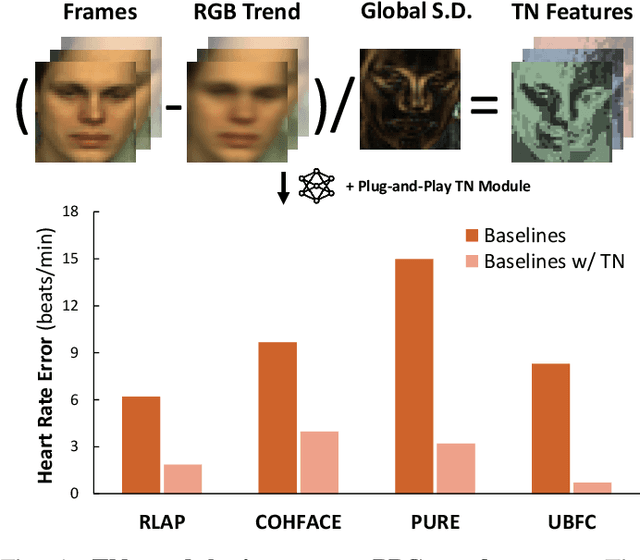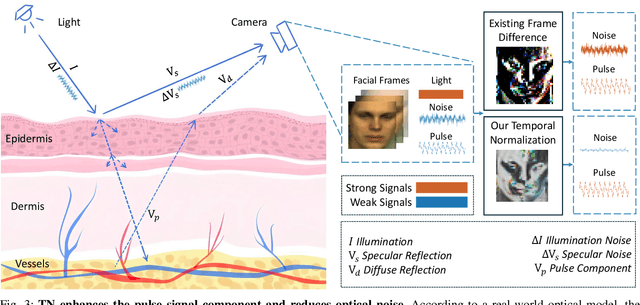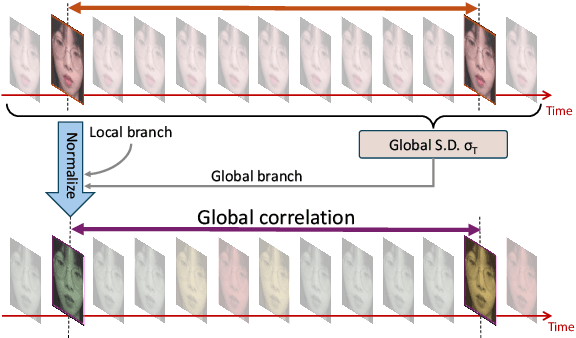A Plug-and-Play Temporal Normalization Module for Robust Remote Photoplethysmography
Paper and Code
Nov 22, 2024



Remote photoplethysmography (rPPG) extracts PPG signals from subtle color changes in facial videos, showing strong potential for health applications. However, most rPPG methods rely on intensity differences between consecutive frames, missing long-term signal variations affected by motion or lighting artifacts, which reduces accuracy. This paper introduces Temporal Normalization (TN), a flexible plug-and-play module compatible with any end-to-end rPPG network architecture. By capturing long-term temporally normalized features following detrending, TN effectively mitigates motion and lighting artifacts, significantly boosting the rPPG prediction performance. When integrated into four state-of-the-art rPPG methods, TN delivered performance improvements ranging from 34.3% to 94.2% in heart rate measurement tasks across four widely-used datasets. Notably, TN showed even greater performance gains in smaller models. We further discuss and provide insights into the mechanisms behind TN's effectiveness.
 Add to Chrome
Add to Chrome Add to Firefox
Add to Firefox Add to Edge
Add to Edge